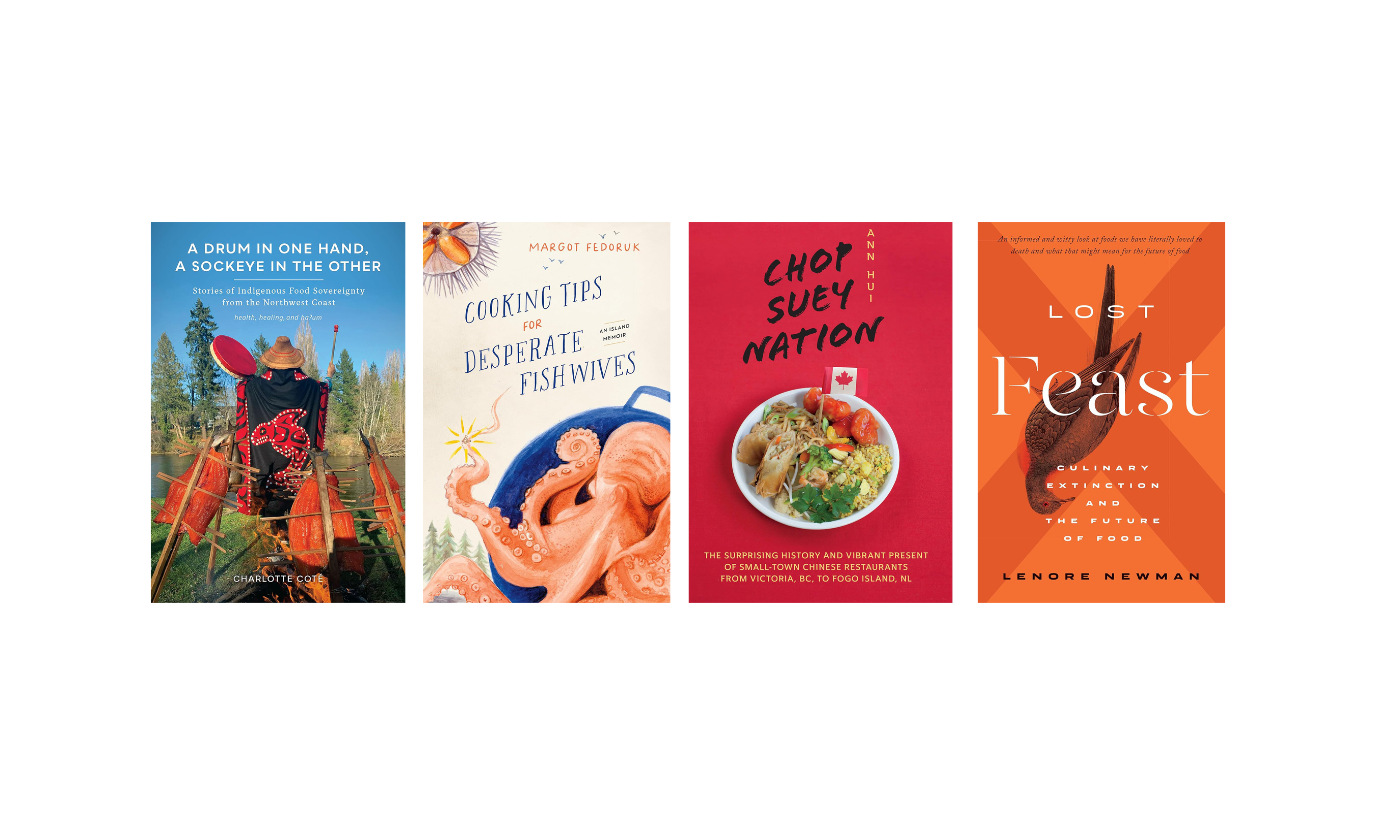B.C. Stories Worth Savouring
Before discovering the genre of culinary non-fiction, I frequently read cookbooks cover-to-cover. I loved drinking in the artfully lit photographs and cheerful recipe introductions. Food memoirs advanced this obsession, as they step back from ingredient lists to look at the deeper gifts food can provide: connection to culture, family and community.
These four food memoirs are some of my most recently published favourites. They traverse B.C.’s culinary reaches: from traditional food practices on the Island’s west coast to clam digging on Gabriola Island. Each author invites you into their homes and histories, recounting the ways that food can connect us to those places.
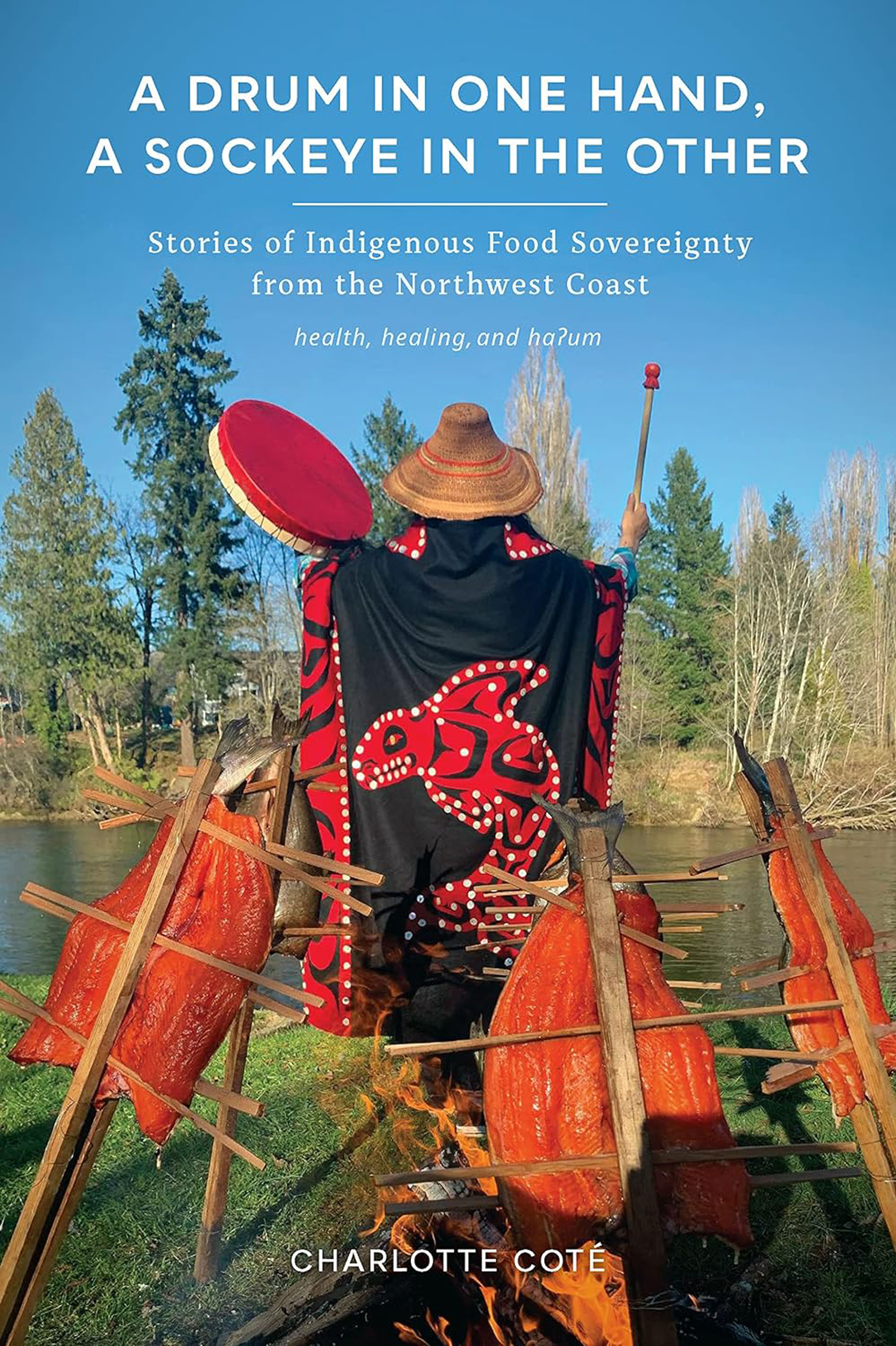
A Drum in One Hand, a Sockeye in the Other: Stories of Indigenous Food Sovereignty from the Northwest Coast by Charlotte Coté (University of Washington Press, 2022)
Reporting from the Tseshaht First Nation on the west coast of Vancouver Island, Charlotte Coté paints a vivid picture of her community’s deep connection to traditional food. She describes communal fishing days where the work and bounty is shared and generously recounts the kernels of wisdom garnered from aunties while picking blackberries every summer.
Woven within the context of her own story, Coté presents food sovereignty as an answer to the ongoing inequality that Indigenous people face. She provides an engrossing history of food traditions pre-colonialism, explaining that a strong hereditary chiefdom once divided the rights and responsibilities of caring for Vancouver Island’s lands and waterways, and argues convincingly in favour of a return to these traditional values.
I bought this book on a B.C. ferry over the summer and devoured it from a series of oceanside patios—a fitting setting for Coté’s beautiful, intimate descriptions of Island life. This book is perfect for anyone looking to decolonize their understanding of the Island’s history.
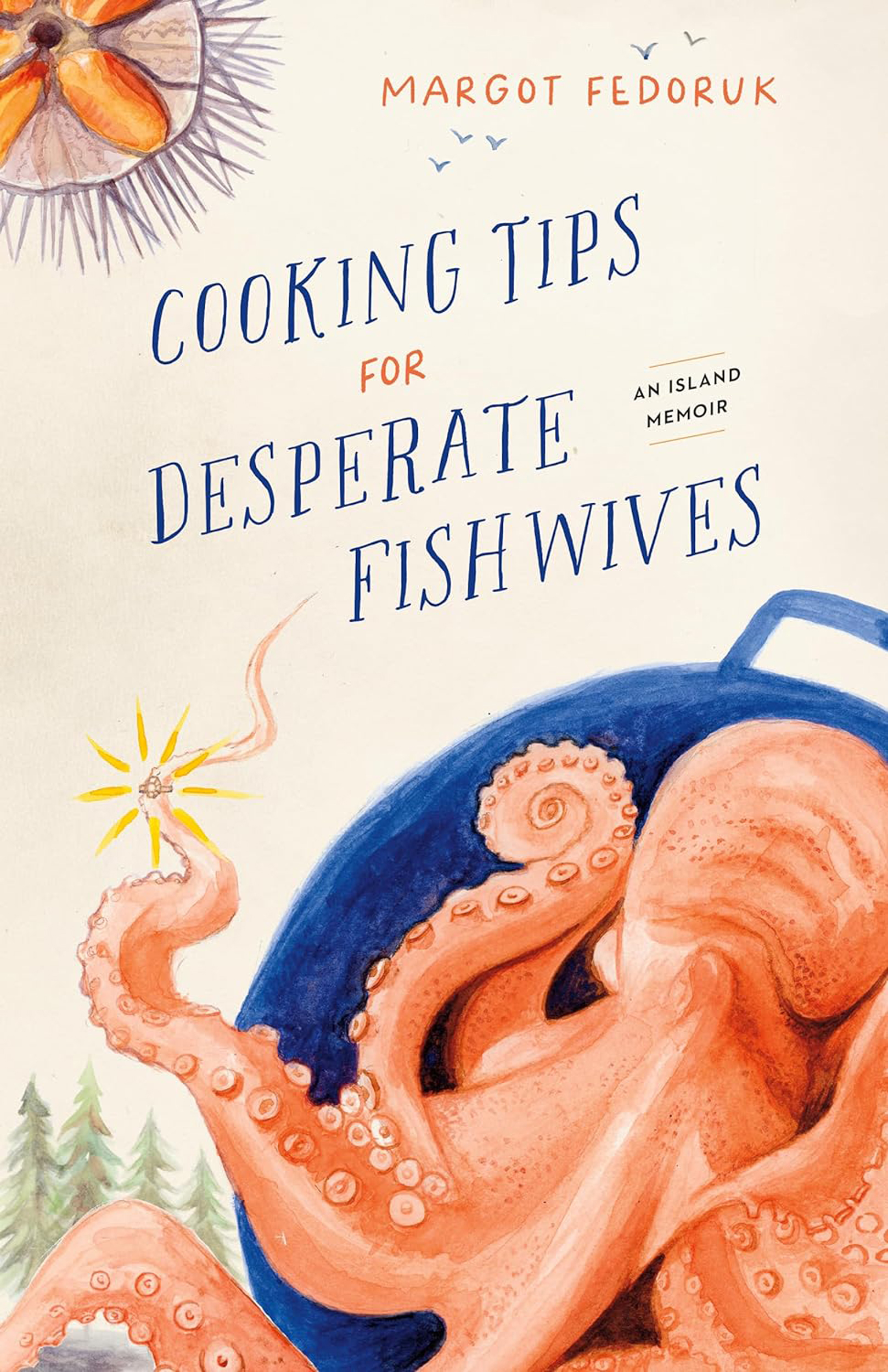
Cooking Tips for Desperate Fishwives: An Island Memoir by Margot Fedoruk (Heritage House, 2022)
Margot Fedoruk’s poetic prose will immerse you in a quintessential West Coast adventure: since her arrival in 1989, she has planted trees, made soap, kept chickens—and survived motherhood. In this darkly humorous memoir, Fedoruk recounts coming west from Winnipeg at 23 years old and falling in love with a sea urchin diver. Soon, she finds herself pregnant and cooking meals for divers on his vessel, The Buckaroo, as it navigates the rocky coastline. Eventually settling on Gabriola Island, Fedoruk speaks candidly about loneliness, motherhood and finding community while her husband spends weeks at sea.
Fedoruk interlaces her story with a collection of recipes ranging from inherited eastern European dishes to modern coastal meals. These favourite meals establish an intimacy with the author, lending a multidimensional context in which to absorb her life and experiences.
This is a great beach or armchair book. I appreciated its candidacy about motherhood, and laughed out loud at some parts.
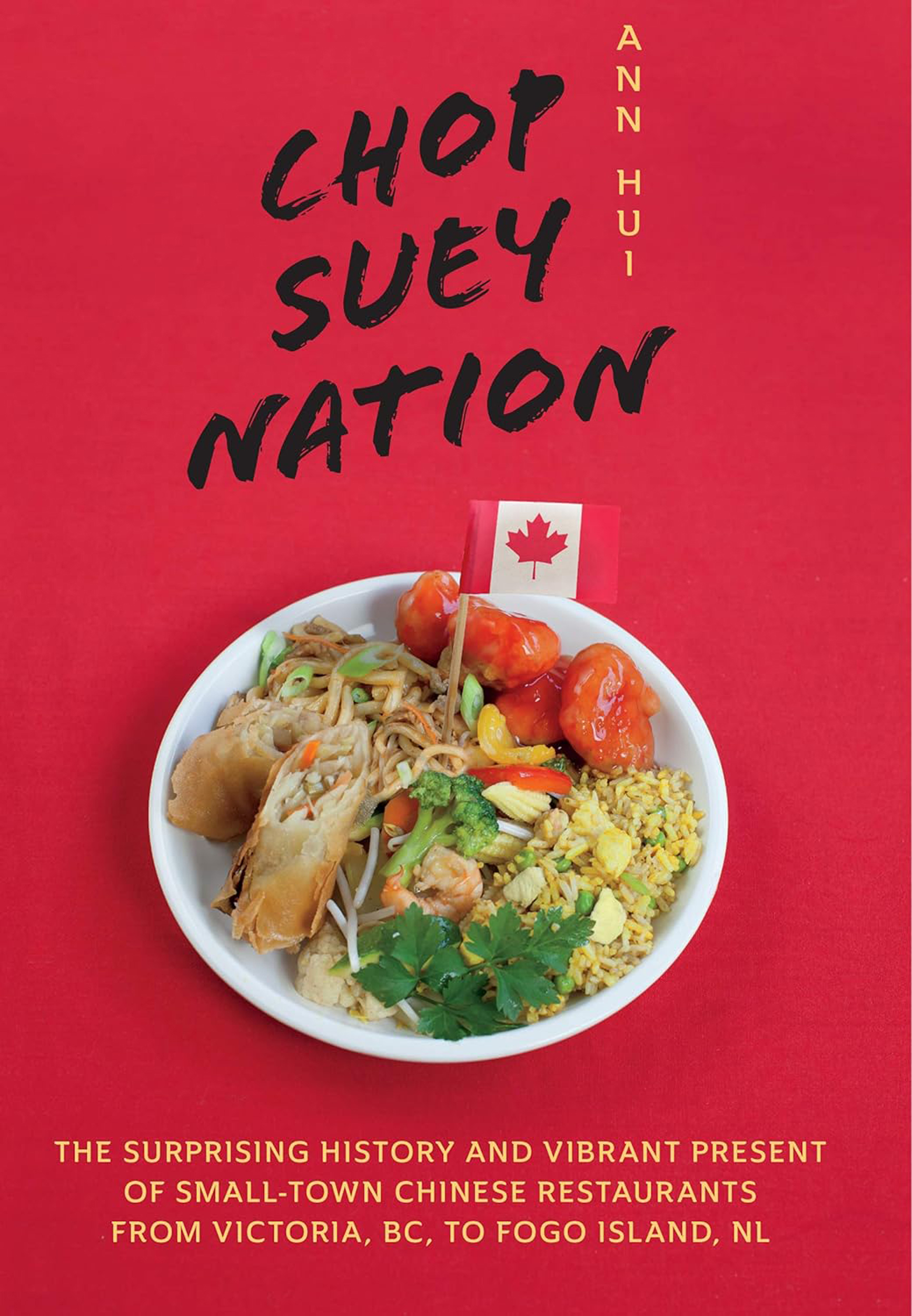
Chop Suey Nation: The Legion Café and Other Stories from Canada's Chinese Restaurants
by Anne Hui (Douglas & McIntyre, 2019)
In this cozy and insightful culinary memoir, journalist Anne Hui drives across the country in pursuit of answering the question, "why is there a Chinese restaurant in every Canadian town?" The story begins in Victoria, a partial homage to the first Chinese-Canadian immigrants who arrived in search of gold in the 1850s. She introduces Chinese-Canadian history through the lens of Victoria’s Chinatown; then ruminates on the gentrification of today’s Fisgard Street. The poorly translated Chinese street signs and excess of Hello Kitty tchotchkes feel inauthentic to her.
The question of “fake” versus “real” Chinese culture persists as Hui travels east to Newfoundland, interviewing restaurant owners faithfully serving Chinese-Canadian classics, like chow mein and ginger beef. Hui seeks to understand the pervasiveness of these dishes, which are far removed from traditional Chinese fare. In the midst of her research, Hui discovers a closely kept family secret: her parents had owned their own Chinese restaurant in the 1970s. The discovery sparks a race to unravel the story of her family’s migration from poverty-stricken Guangdong, China, to the Legion Café in Abbotsford, B.C.
This is a fascinating deep-dive into one of Canada’s most ubiquitous—and overlooked—food traditions. I loved this book so much, I purchased two more copies to give to friends for Christmas.
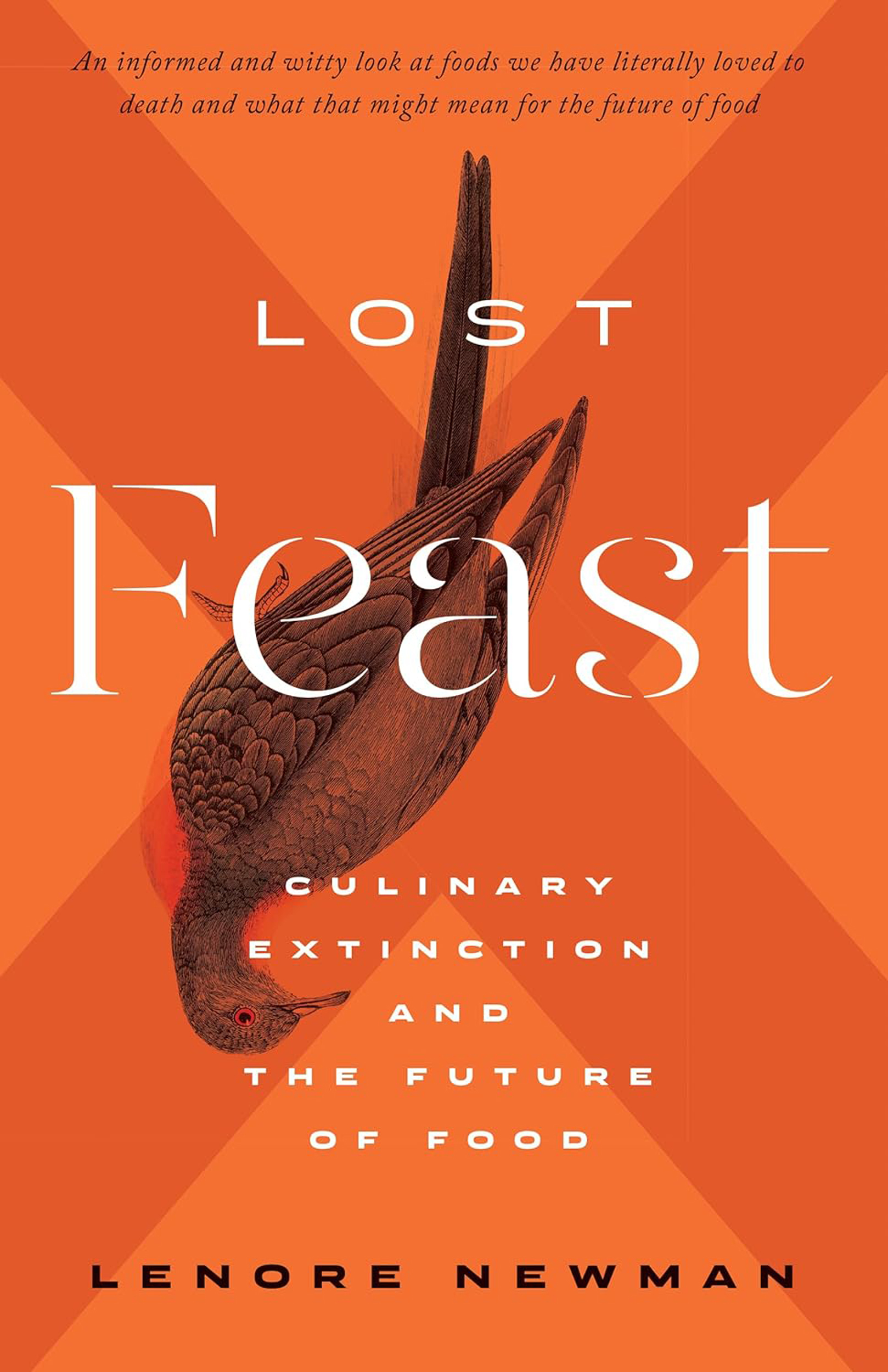
Lost Feast: Culinary Extinction and the Future of Food
by Lenore Newman (ECW Press, 2019)
Lenore Newman investigates culinary extinction in a gripping narrative that dances between culinary memoir and historical non-fiction. From her perch as Canada Research Chair at the University of the Fraser Valley, Newman delves into the paradox of food diversity becoming jeopardized by industrialization and ecosystem loss.
Hailing from a fishing family on the Sunshine Coast, Newman infuses familiar locales (such as Vancouver’s Granville Island Market), personal anecdotes and shared meals with friends into her scientific unravelling of food history. While the book raises the alarm on “loving our food to death,” it maintains an intimate, conversational tone.
This book satisfied my nerdy, history-loving sensibilities, as Newman’s research is presented in an approachable format that will fascinate anyone with questions about food security.


